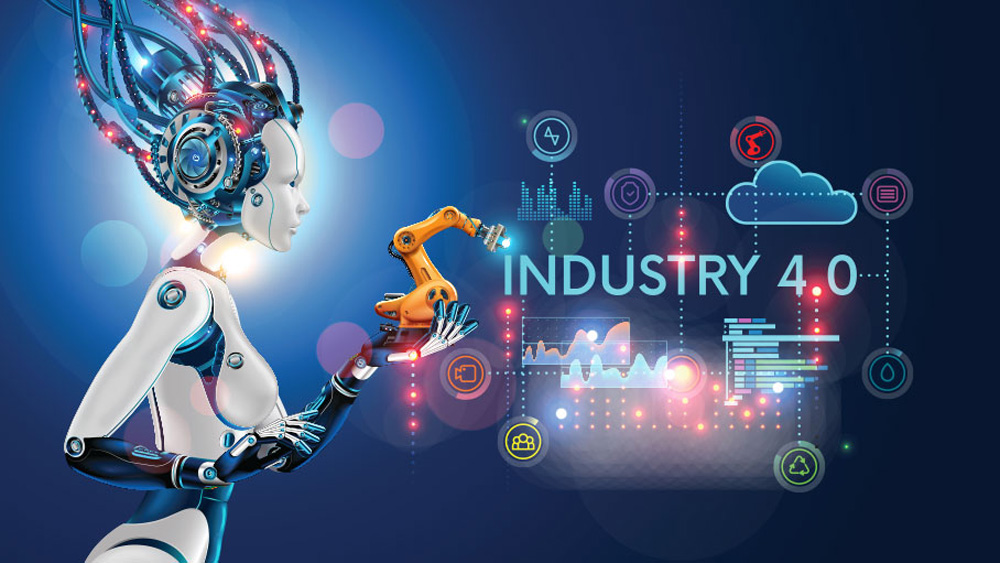Transforming for Growth

Digital transformation is proving itself to be highly crucial in making everyday manufacturing operations faster and easier. Here’s knowing the role new-age tech platforms are playing in bringing a sustainable shift in the digitization of the manufacturing industry…
Digital transformation is revolutionizing the industry in the same way as the ‘Industrial Revolution’ revolutionized manufacturing. However, manufacturing is one of the industries that has been slow to adopt digital transformation at both the corporate and operational levels.Digital transformation is revolutionizing the industry in the same way as the ‘Industrial Revolution’ revolutionized manufacturing. However, manufacturing is one of the industries that has been slow to adopt digital transformation at both the corporate and operational levels.
Manufacturing organizations are beginning to utilize technology to make the switch from traditional business models to futuristic ones, and we are definitely seeing an uptick now. Furthermore, buyers’ expectations and the emergence of interoperability and connected platforms are driving digitization.
The industry will continue to evolve in response to the issue of ensuring the delivery of appropriate products to the right person at the right price via a more sophisticated procedure. Here’s how new-age tech platforms are proving instrumental in bringing a sustainable shift in the digitization of the manufacturing industry.
Industry 4.0 and the evolution of manufacturing employment
Manufacturers in the era of Industry 4.0 need to be knowledgeable, connected, flexible, and customer-focused. Future factories must run without a hitch, delivering goods on schedule, of acceptable quality, and with the least amount of scrap and rework possible. Additionally, manufacturing must provide more personalized items, affordable rates, and quick turnaround times. Since it’s a big task, Industry 4.0 calls for cutting-edge software and technology.
As a result of increasing interconnection and intelligent automation, the Fourth Industrial Revolution predicts fast change in technology, industry, and societal patterns and processes in the twenty-first century. Today, businesses are creating the groundwork for connectivity and a single IT/OT (information technology systems with operational technology) digital platform. Apart from 4G/5G, more technologies are now emerging to assist Industry 4.0 work in challenging conditions.
The significance of Industry 4.0 becomes even more obvious against the backdrop of a crisis like COVID-19. Players using digital solutions were better positioned to weather the storm because they could move more quickly and far during the crisis than their competitors. The organizations have benefited from the accelerated adoption of quick-win solutions that assist businesses in responding to and adapting to the new norms, such as tracking employee health, ensuring safe distancing on the work floor, and facilitating remote collaboration. Regardless of a company's current IT infrastructure, use-cases relying on digital work instructions, augmented reality-based operator aid, and easy, affordable retrofit automation may also become increasingly common. Digital performance management (DPM) has also been a well-liked early use case at various businesses, including numerous small precision engineering firms, where DPM pilots have helped increase productivity by 40 percent to 70 percent.According to a NASSCOM-Capgemini report titled, ‘India Industry 4.0 Adoption: A Case to Mature Manufacturing Digitalization by 2025’, Industry 4.0 can help the Manufacturing sector contribute 25 percent of GDP by FY26, paving the way for India’s Manufacturing sector to become an intelligent industry. The boost will help India’s Manufacturing sector achieve the national growth target of US$1.1 trillion by FY26.
The Manufacturing industry has reached an unprecedented yet unavoidable tipping point with Industry 4.0. In the next two years, there is an urgent need to increase investments in digitalization and hasten the deployment of an ROI-driven and outcome-based strategy.
Digital transformation with new-age tech solutions
The Indian Industrial sector has already started to pivot towards digitalization, thanks to increased investment in foundational technologies such as the Cloud and IoT. By 2025, more than two-thirds of India’s Manufacturing industry will likely have adopted Industry 4.0. Businesses will start focusing on new business models and understanding that end customers expect new, intelligent goods.
Discrete manufacturers in Auto, Electrical, and Electronics account for 75 percent of total tech spending, while Chemicals and Pharma top the Process Manufacturing industry. Although the industry has hurdles in scaling up Industry 4.0 technologies, financial and leadership constraints provide an opportunity to address these issues. Digital solutions that can help businesses flourish include:
- Cloud and SaaS-based solutions to outsource non-core tasks to reduce fixed costs.
- AI-based computer vision to reduce the cost of quality checks and address defects.
- Big Data Analytics to minimize risk effects.
Another emerging new-age tech includes predictive maintenance (PdM), which encompasses a wide range of approaches for detecting early symptoms of equipment faults, allowing operators and maintenance personnel to intervene before a breakdown occurs. PdM programs that are successful lower the need for unscheduled maintenance interventions. This lowers maintenance expenses while increasing output and throughput, especially for assets that are capacity constrained. Furthermore, these programs can extend the useful life of high-cost components while lowering the chance of machine failure.
The key forces behind the Manufacturing sector’s digital transformation are shifting consumer expectations and fierce competition. Using digital technology, manufacturers may increase speed and efficiency, cut costs, and provide superior consumer experiences. The epidemic has made manufacturers more aware of their company’s operational flaws and limitations. For instance, they now recognize the need to have access to real-time supply chain data so they can respond to supply problems and demand rises more swiftly. Modern technology has enabled the industrial sector to efficiently use digital technology to improve operational procedures and increase supply chain efficiency. Supply chain systems are now connected, thanks to digital transformation, which can assist manufacturers in gathering equipment data by utilizing AI and predictive analytics.
The way forward
Global humanitarian issues brought on by the COVID-19 epidemic demand a new kind of cooperation to solve problems. Organizations have the chance to reimagine a future with digitized, resilient operations as they restart their operations in the new normal. Early successes have demonstrated that businesses can begin to reboot and quickly scale up if they commit to the transformation of Industry 4.0 in accordance with their business environment and strategic goals.
The Manufacturing industry has reached an unprecedented yet unavoidable tipping point with Industry 4.0. In the next two years, there is an urgent need to increase investments in digitalization and hasten the deployment of an ROI-driven and outcome-based strategy. Enterprises in the area should prioritize investments in new technology, Big Data Analytics, central and remote-controlled monitoring, and process automation over the next 18-24 months. Scaling up existing IoT and Cloud deployments to develop new use cases and industrial automation will require a mix of these new investments and innovations. Only then will the Manufacturing industry be positioned to capitalize on the available digital solutions and make a sustainable business impact. 
DR RAUNAK BHINGE
Founder & CEOInfinite Uptime



 Facebook
Facebook.png) Twitter
Twitter Linkedin
Linkedin Subscribe
Subscribe